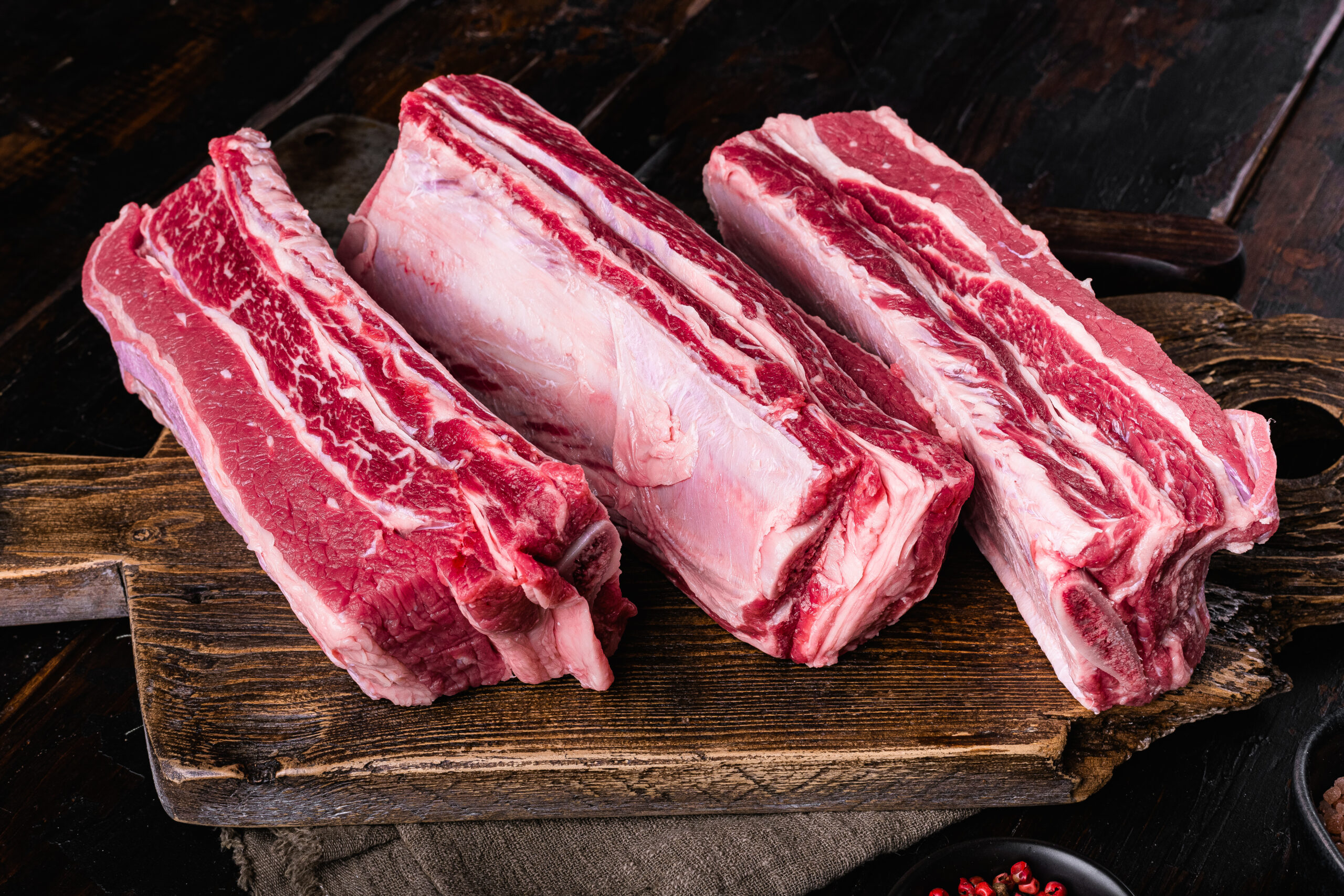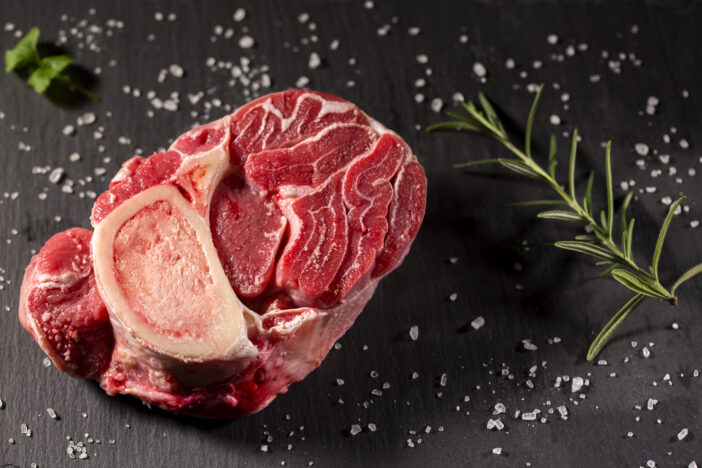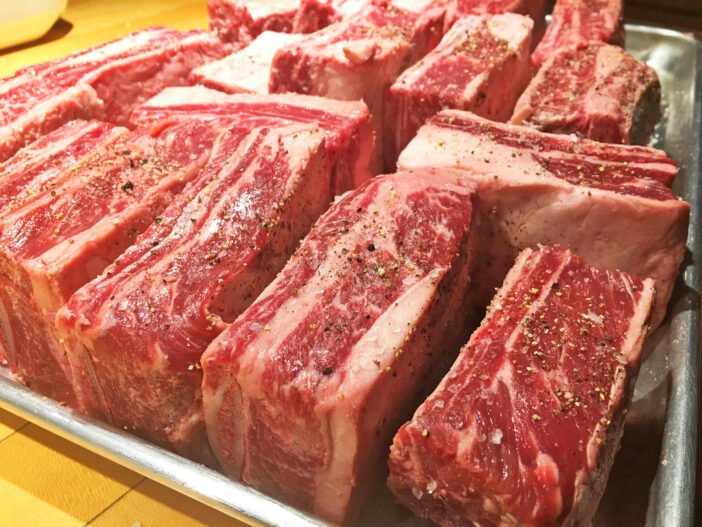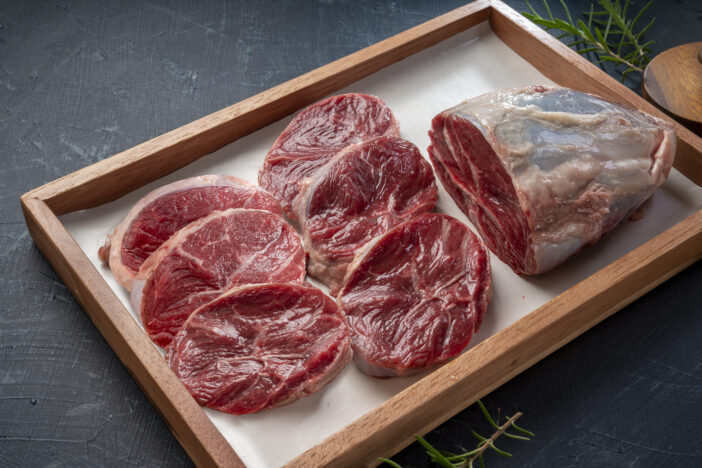5 Differences Between Beef Shank vs Short Ribs for Better Meals
Beef shank and short ribs vary in calories, fat, and protein. Shank is leaner, while ribs are richer. Shank has an earthy flavor, great for stews; ribs are succulent, ideal for roasting. Shank is more cost-effective but ribs yield more meat.

When it comes to hearty, flavorful cuts of beef, beef shank, and short ribs often steal the show. Understanding their differences can elevate your culinary game and ensure you choose the perfect cut for your next meal.
Disclosure: As an Amazon Associate, this site earns from qualifying purchases. Thank you!
Nutritional Comparison of Beef Shank and Short Ribs

Here’s a quick nutritional comparison between beef shank and short ribs to help you make better culinary decisions.
Caloric Content
Beef shank has fewer calories. A 3-ounce serving contains approximately 180 calories. Short ribs pack more energy, offering around 370 calories for the same serving size.
Protein Content
Both cuts are rich in protein. Beef shank provides about 27 grams per 3 ounces, making it leaner. Short ribs offer around 20 grams per 3 ounces, still a good source of protein but slightly less.
Fat Composition
Fat content differs significantly. Beef shank contains roughly 8 grams of fat per serving. Short ribs, on the other hand, boast a higher fat content of about 30 grams per 3-ounce serving, contributing to their richer flavor.
Flavor Profiles of Beef Shank and Short Ribs

Understanding the flavor profiles of beef shank and short ribs helps you choose the right cut for your dishes.
Beef Shank Flavor Characteristics
Beef shank delivers a robust, earthy flavor. This cut comes from the leg, so it’s rich in tendons and collagen. Slow cooking transforms these into a gelatinous texture, intensifying the savory taste. Ideal for stews, soups, and braises, it pairs well with hearty vegetables and bold spices like rosemary and garlic.
Short Ribs Flavor Characteristics
Short ribs offer a rich, succulent flavor. With a higher fat content, they exude a deep, beefy taste when cooked. The marbling within the meat provides an unctuous texture, making it perfect for slow roasting or barbecuing. They’re often used in Korean BBQ and American-style slow-cooked dishes, complementing sweet and tangy marinades.
Best Cooking Methods for Beef Shank and Short Ribs
Slow Cooking Beef Shank
Slow-cook beef shank for tender, flavorful results. Use a slow cooker or Dutch oven. Add broth, vegetables, and spices. Cook on low for 6-8 hours. Serve with mashed potatoes or polenta.
Braising Short Ribs
Braise short ribs for rich, juicy meat. Brown ribs in a hot pan. Transfer to a pot with wine, stock, and aromatics. Cover and cook at 325°F for 2-3 hours. Pair with roasted veggies or creamy mashed potatoes.
Ideal Dishes to Make with Beef Shank and Short Ribs
Discover the best dishes to highlight the unique qualities of beef shank and short ribs.
Popular Beef Shank Recipes
- Osso Buco: Braise beef shank with white wine, beef broth, and vegetables. Slow-cooked, this Italian classic delivers tender meat and a flavorful sauce.
- Beef Shank Stew: Simmer beef shank with root vegetables and herbs. Ideal for cold weather, it has a rich, hearty flavor.
- Beef Shank Soup: Cook beef shank with garlic, onions, and tomatoes. This soup is comforting and protein-packed.
Short Rib Recipes
- Braised Short Ribs: Braised short ribs with red wine, beef stock, and aromatics. This dish offers a melt-in-your-mouth texture and robust flavor.
- Korean BBQ Short Ribs (Galbi): Marinate short ribs in a mix of soy sauce, sugar, garlic, and sesame oil. Grill them for a sweet and savory experience.
- Short Rib Ragu: Simmer short ribs in a tomato and red wine sauce. Serve over pasta for a rich, luxurious meal.
Cost Comparison Between Beef Shank and Short Ribs

When choosing between beef shank and short ribs, it’s important to consider the cost differences. These cuts vary in price based on several factors.
Market Price Variability
Beef shank generally costs less than short ribs. On average, beef shank goes for $4-$6 per pound, while short ribs range from $7-$12 per pound. Prices fluctuate depending on location, season, and quality.
Portion Sizes and Yield
Beef shank provides larger portions. A single piece of beef shank can weigh up to 2 pounds but includes significant bone. Short ribs, on the other hand, offer smaller portions, often around 0.5-1 pound per piece, with a higher meat-to-bone ratio.
In brief, beef shank offers a more economical option, while short ribs deliver a higher yield of flavorful meat. Choose based on your budget and culinary needs.
Frequently Asked Questions
What are the main differences between beef shank and short ribs?
Beef shank is lower in calories and fat but higher in protein compared to short ribs. It has a robust, earthy taste ideal for stews and braises. Short ribs have a rich, succulent flavor perfect for slow roasting and barbecuing.
Which cut of meat is more cost-effective?
Beef shank is generally more economical, costing around $4-$6 per pound, whereas short ribs range from $7-$12 per pound. Beef shank provides larger portions with significant bone, while short ribs offer a higher meat-to-bone ratio.
What are the best cooking methods for beef shank?
The best way to cook beef shank is through slow cooking in a slow cooker or Dutch oven. This method ensures the meat becomes tender and flavorful.
How should I cook short ribs for the best flavor?
To achieve rich, juicy short ribs, braise them in a pot with wine, stock, and aromatics. Alternatively, you can slow roast or barbecue them.
What dishes are ideal for beef shank?
Ideal dishes for beef shank include Osso Buco and Beef Shank Stew. These recipes make use of its robust flavor and tender texture when slow-cooked.
What are some popular recipes for short ribs?
Popular recipes for short ribs include Braised Short Ribs and Korean BBQ Short Ribs. These dishes highlight the succulent, rich flavor of the meat.
Is beef shank healthier than short ribs?
Beef shank is lower in calories and fat but higher in protein compared to short ribs, making it a healthier option depending on your dietary needs.
Can I use beef shank instead of short ribs in recipes?
Yes, you can substitute beef shank for short ribs in recipes, but be mindful that the flavors and textures will differ. Beef shank is more robust and less fatty than short ribs.
What should I consider when choosing between beef shank and short ribs?
Consider your budget and culinary needs. Beef shank is more economical and provides larger portions, while short ribs offer a higher meat-to-bone ratio and richer flavor.





